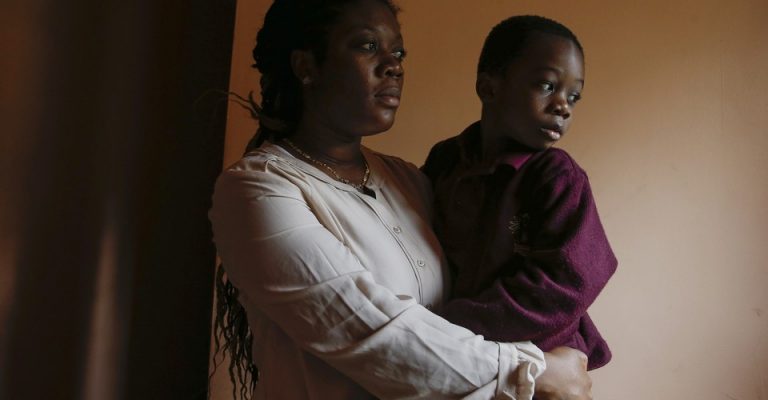A 2014 study from the Federal Reserve Bank of Chicago, which looked at factors like parental income, education, and family structure, shows a similar pattern: Many black Americans not only fail to move up, but show an increased likelihood of backsliding. According to the study, “In recent decades, blacks have experienced substantially less upward intergenerational mobility and substantially more downward intergenerational mobility than whites.”
The greater probability of slipping back applies to blacks across income groups. According to the Fed study, about 60 percent of black children whose parents had income that fell into the top 50 percent of the distribution saw their own income fall into the bottom half during adulthood. This type of downward slide was common for only 36 percent of white children.
But the gap in mobility was also significant for lower-class families as well. “For most of the bottom half of the income distribution, the racial differences in upward mobility are consistently between 20 and 30 percent,” writes senior economist Bhashkar Mazumder, the study’s author. “If future generations of white and black Americans experience the same rates of intergenerational mobility as these cohorts, we should expect to see that blacks on average would not make any relative progress.”
The explanations for this phenomenon are varied, but largely hinge on many of the criticisms that already exist in regard to socioeconomics and race in the U.S. Economists cite lower educational attainment, higher rates of single-parent households, and geographic segregation as potential explanations for these trends. The latter determines not only what neighborhoods people live in, but often what types of schools children attend, which could play a role in hindering their educational and professional attainment later on. According to Reeves, “In terms of opportunity, there are still two Americas, divided by race.”
Still, most economists lack a clear, definitive explanation for why, after reaching the middle class, many black American families quickly lose that status as their children fall behind.
We want to hear what you think about this article. Submit a letter to the editor or write to letters@theatlantic.com.





